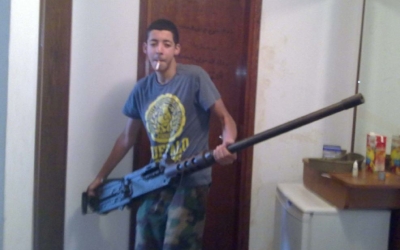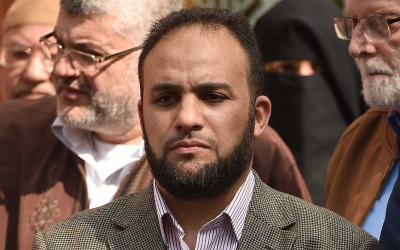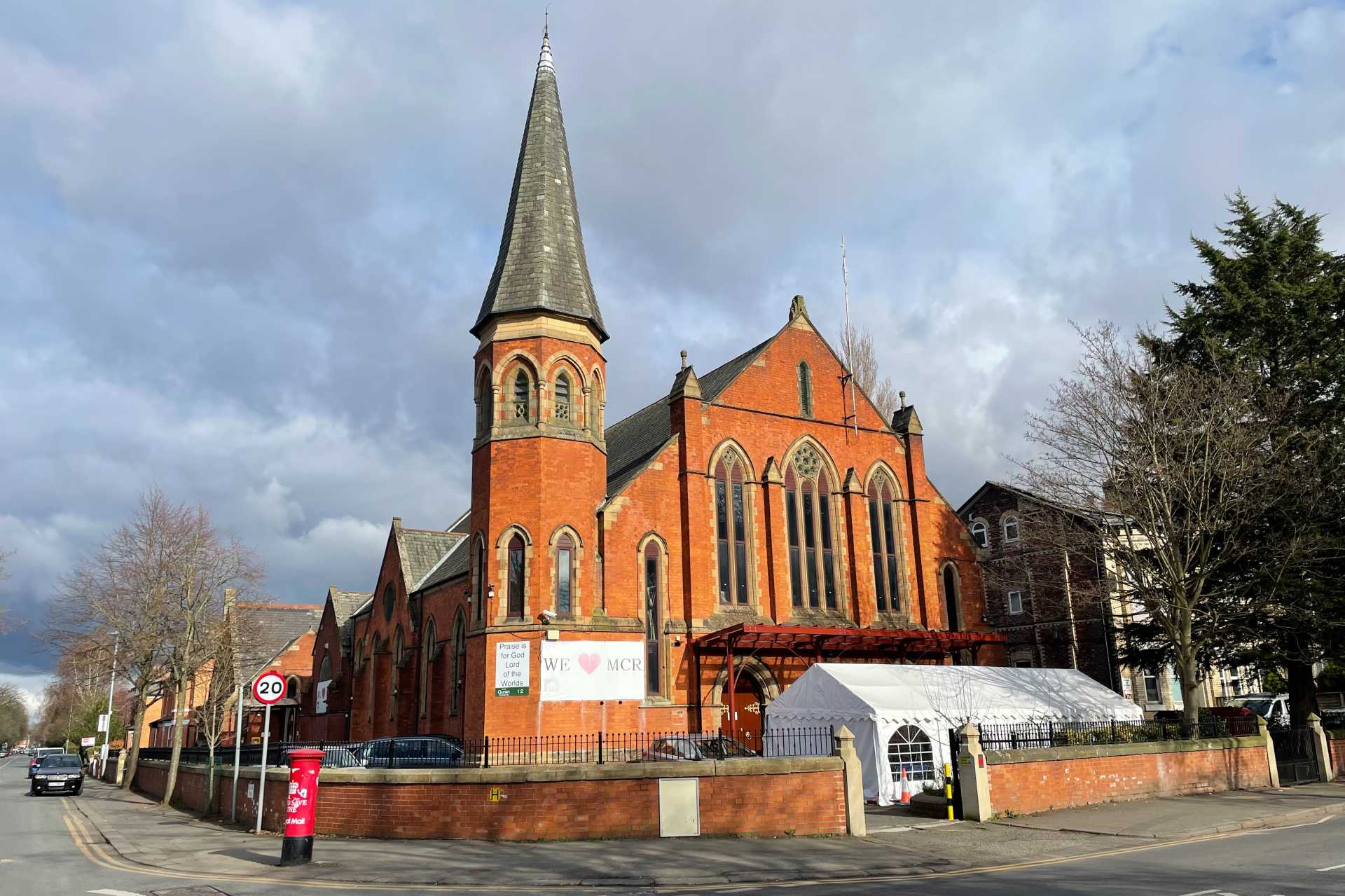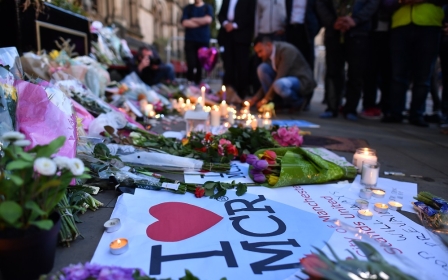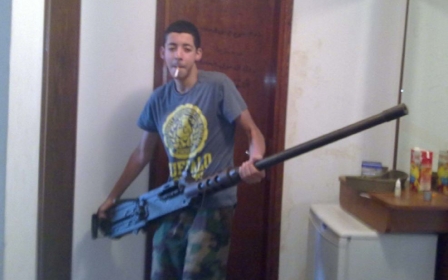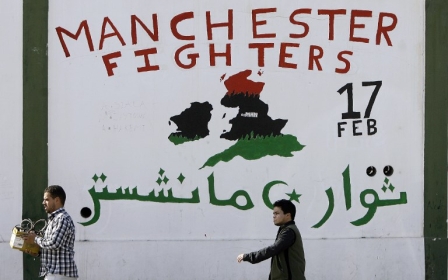Manchester Arena Inquiry: Chair of Didsbury Mosque says it has been treated unfairly
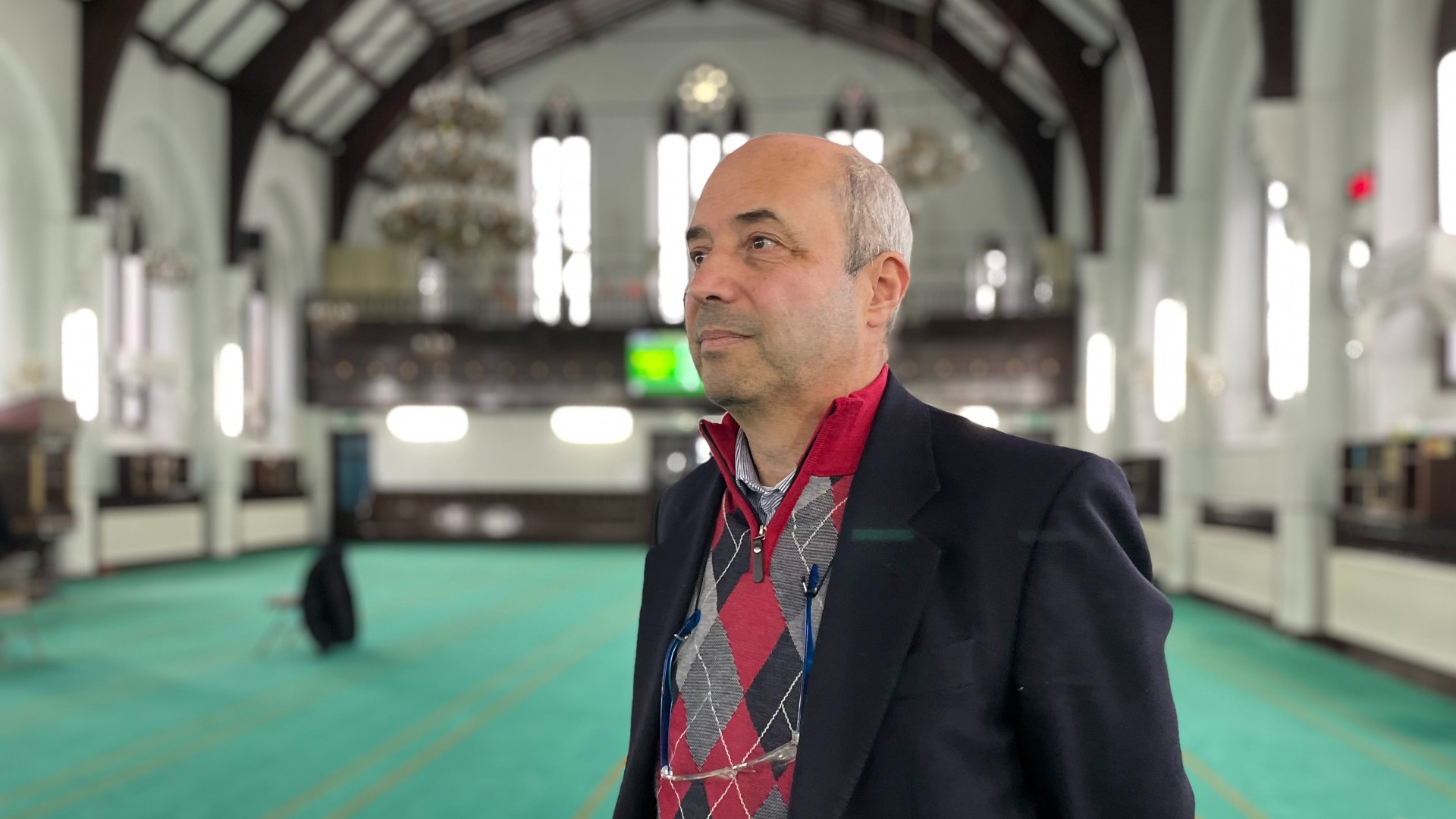
The chair of a Manchester mosque criticised by a public inquiry into the deadly 2017 bombing of a music venue in the city has said he is disappointed by the report and believes the mosque has been treated unfairly.
In its final report, published on Thursday, the Manchester Arena Inquiry concluded that the Manchester Islamic Centre, also known as Didsbury Mosque, had played no part in the radicalisation of bomber Salman Abedi or his brother, Hashem Abedi.
But it said that the chair of the mosque had “tended to downplay the strength of the links between the Abedi family and Didsbury Mosque in the years leading up to the Attack”.
Sir John Saunders, the chair of the inquiry, said he had found that evidence given by Fawzi Haffar, the mosque’s chair of trustees, was “unreliable” and “lacked credibility”.
Saunders said the mosque had displayed “weak leadership” in failing to address what an expert witness to the inquiry described as a “very toxic political environment” fuelled by conflict and unrest in Libya.
He said the leadership did not want to offend supporters of different sides in the Libyan conflict, which led to a “wilful blindness" in respect of the activities that went on at the mosque.
“On any view, in the years leading up to the Attack, the leadership of the mosque did not pay sufficient attention to what went on at its premises and did not have policies in place that were robust enough to prevent the politicisation of its premises,” he said.
Responding to the report, Haffar told Middle East Eye: “I am really disappointed. I was hoping it would be fairer than that. Personally, I feel we have been used as a scapegoat.”
In a statement on Friday, the mosque said: “First and foremost, Didsbury Mosque wishes to recognise the bravery and dignity shown by the victims and the families of victims during the course of the inquiry and the evidence heard.
“The mosque will do all it can to ensure that it is a place of peace, calm and safety for all those who come to worship or visit, and recognises and understands how dangerous the scourge of extremism/terrorism can be.”
It said it agreed with the conclusion that the mosque was not involved in the radicalisation of the Abedi brothers, but disputed some of the findings of the report.
'Didsbury Mosque does not agree with the assertion that it was "wilfully blind". There were no meetings of radical Libyan groups at the mosque'
– Didsbury Mosque statement
“Didsbury Mosque does not agree with the assertion that it was ‘wilfully blind’,” it said. “There were no meetings of radical Libyan groups at the mosque.”
It said that photos and videos presented to the inquiry as “evidence of extremism” showed a “lawful registered charity/social meeting”, and cited evidence submitted to the inquiry describing the meeting as an event “to celebrate the anniversary of the Libyan 17th February revolution”.
It said a video handed to the inquiry by counterterrorism police showing Ramadan Abedi, the father of Salman Abedi, in the mosque’s prayer hall had been presented as “evidence of an extremist circle at the mosque”.
The video, it said, in fact showed Ramadan Abedi attending his eldest son Ismail Abedi’s nikah (wedding) ceremony.
It said the inquiry had adopted a flawed approach in linking the mosque to Libya because it had done so based on “the common ethnic heritage of some of our staff and those who come to pray.
“We also cannot be linked with the politics and political comments of the Libyan or any community on their social media or in their private lives, simply because they come and say their prayers at our premises or hold a charity meeting or marriage here,” it said.
“The inquiry and its lawyers and expert have also sometimes confused political comments and discussions about conflicts overseas with extremism that leads to terrorism. Are the Muslim community not able to discuss any politics overseas? This is a flawed approach.”
Didsbury was thrown into the spotlight in the days after the Manchester bombing, following media reports that Salman Abedi had sometimes attended the mosque.
Haffar told MEE the mosque had subsequently been requested by the inquiry to participate, and had agreed to do so voluntarily.
“We decided of course that we wanted to assist. We knew that we, the trustees, the attendees, the staff, are innocent of this whether this person was here or not,” he said.
But because it was not designated a “core participant” in the inquiry, it had not been permitted to properly cross-examine and challenge key witnesses and evidence critical of the mosque, Haffar said.
These included a former imam whose employment at the mosque, the report said, “ended in circumstances of rancour”.
"They never gave us a chance for our counsel to question him," said Haffar.
Haffar was not permitted either to read out a statement expressing the mosque’s condolences to the families of the victims.
'Bitter rivalry' between imams
Haffar suggested the inquiry had relied too heavily on evidence submitted by the former imam, whom Haffar accused in testimony of “holding a grudge”.
Testifying to the inquiry, the former imam, Mohammed Saeed El-Saeiti, said Salman Abedi had once given him a “hateful look” over a Friday sermon he delivered in 2014 which he described as “combatting terrorism and extremism”.
In his report, Saunders said he accepted Saeiti’s evidence.
But in its statement on Friday, the mosque said: “It should be noted that Mr Haffar was subjected to vigorous cross-examination whereas Mr Saeiti was not. The opinion of Didsbury Mosque is that had Mr Saeiti been cross-examined and had his evidence been tested, he would have been found lacking in credibility and his evidence widely dismissed.”
Saeiti, who is Libyan, alleged that the mosque had tolerated the presence of a group of Libyans, including Ramadan Abedi, who were supportive of hardline Islamist militias in eastern Libya and, Saeiti suggested, had links to al-Qaeda and the Islamic State (IS) group.
But in his own evidence to the inquiry, Haffar said Saeiti’s account was coloured by his own political views and by a “bitter rivalry, bordering on hatred” with the senior imam at the mosque, Mustafa Graf, who was also Libyan.
According to Haffar, the two men had taken opposite sides during Libya’s civil war.
Graf had supported the uprising against Gaddafi and subsequently the United Nations-backed government in Tripoli, a view shared by many among the mosque’s Libyan community, Haffar said.
But Saeiti, he said, had backed Khalifa Haftar, the renegade military commander based in Benghazi, in eastern Libya.
Haffar said in evidence that Saeiti had been warned over his 2014 “sermon on extremism” because he had provoked “anger and rage” by describing Benghazi militias then fighting against Haftar’s forces as “dogs of hellfire”.
He said that both imams had been told not to bring the politics of Libya and the Middle East into the mosque.
Graf was warned by the trustees about a sermon in November 2016, in which he talked about “jihad” in appealing for congregants to donate money to a charity collection for Syria at the time of the siege of Aleppo, because of their concerns that his use of the word could be misconstrued as support for armed jihad.
Graf was later investigated and cleared of wrongdoing by police, as well as by an independent investigation commissioned by the mosque, after details of the sermon were reported in 2018.
“Manchester Muslims and our mosque did not create the external restive environment in Libya and Manchester but have had to manage this difficult situation among the community which attends its congregation,” Haffar told the inquiry.
Graf, who is now in Libya, was not invited to give evidence to the inquiry. But in a statement submitted in response to Saeiti’s testimony, Graf said he had “been treated as some sort of demon”.
He accused Saeiti of “trying to deceive the inquiry” and suggested Saeiti’s hostility towards him was due to “tribal racism”.
Saeiti told the inquiry: “I only said the truth which I know.”
Both imams left the mosque as part of a restructuring process in 2020.
Haffar said he also disagreed with the characterisation of the mosque by Matthew Wilkinson, a professor of religion in public life at Cardiff University, who was appointed by the inquiry as an expert witness on radicalisation, as a “mainstream Sunni mosque with an occasional activist/Islamist flavour”.
Haffar said that neither Wilkinson nor anyone else involved in the inquiry had visited the mosque during the proceedings.
The mosque’s barrister was given just 20 minutes to cross-examine Wilkinson, he said.
“There was a lot of misconceptions. None of the people who were there had been to our mosque and seen the working of a normal mosque,” said Haffar.
The mosque, he said, was a “mainstream, middle-of-the-road Islamic centre".
“It’s open to everyone. Our ethos and our values are peaceful values. British values, Muslim values, they are almost identical.”
In his evidence to the inquiry, Wilkinson said the mosque did not appear to have had much effect on Salman Abedi “for good or bad”, and suggested he had been more influenced by his own family’s “worldview of violent Islamist extremism”.
'People pray and go'
Haffar said the mosque had been frustrated by an allegation made by a senior counterterrorism police officer during the inquiry that it had been “less positive” than other mosques in connection with a police-organised messaging campaign in 2016 aimed at preventing travel to Syria.
He said the mosque had been unable to defend itself during the inquiry because the allegationhad been made by Dominic Scally, a senior officer in Counter Terrorism Policing North West, in a closed hearing. Much of the evidence given by counterterrorism police and MI5 was heard in secret.
'There was a lot of misconceptions. None of the people who were there [at the inquiry] had been to our mosque and seen the working of a normal mosque'
– Fawzi Haffar, chair of trustees
Haffar said the mosque enjoyed good relations with local police but had never had any contact with their counterterrorism counterparts.
Haffar said that the mosque leadership had been represented on a local advisory group which met with police every two weeks. He said the mosque had been an executive member of the Manchester Council of Mosques, which organised a 2016 campaign to raise awareness about the extremism of IS.
The mosque had also organised and hosted Prevent events at its own initiative, as well as events encouraging young Muslims to join Greater Manchester Police to promote greater diversity in its ranks.
“We had a very good working relationship with the police,” he said.
But he said no one from the police had ever contacted the mosque to raise any concerns about any member of the Abedi family.
After the bombing, Haffar said he had asked a senior officer why police had not warned him if they suspected that dangerous people were attending the mosque.
“I said: ‘If there are people you are suspicious of, why didn’t you tell us to be careful or to keep an eye on them?’
“He said: ‘CTU [counterterrorism police] do not even tell us if there is a suspect in the area. It is on a need-to-know basis.’"
Thursday’s report was highly critical of the UK’s MI5 security service, which Saunders said had missed a “significant opportunity” to prevent the attack which killed 22 people as they were leaving an Ariana Grande concert in May 2017.
Salman Abedi had been able to travel unhindered between the UK and Libya a number of times since the 2011 revolution that toppled long-time Libyan leader Muammar Gaddafi.
The inquiry said that Salman and Hashem Abedi, then aged 16 and 14, had probably fought in Libya in 2011, and had likely been radicalised by the experience, as well as by their family background.
It said Ramadan Abedi had links to the Libyan Islamic Fighting Group, a militant group then proscribed in the UK, and had also joined rebels fighting against Gaddafi’s forces.
The inquiry heard that Ramadan Abedi had occasionally delivered the call to prayer at the mosque until 2005 or 2006, but had stopped attending with any regularity by 2007 and had returned to Libya soon afterwards.
Abedi’s older brother, Ismail, had worked as a volunteer in the mosque between 2014 and 2017, and was married in a ceremony at the mosque, seen in the video evidence presented to the inquiry by counterterrorism police, in 2015.
In his report, Saunders said he was “satisfied” that all three brothers and their father “attended the mosque to pray over a lengthy period”.
But Haffar said that accounts of the occasional attendance of Salman Abedi or other members of his family were based on “hearsay”, and that their presence among hundreds of congregants at Friday prayers would not have been something of which the mosque could have been aware.
"This is purely a place of worship. We have 1,500 people attend Friday prayers and it will be the same today," he said.
"People may come and pray and go. I do not have a window into people’s hearts and minds.”
Middle East Eye propose une couverture et une analyse indépendantes et incomparables du Moyen-Orient, de l’Afrique du Nord et d’autres régions du monde. Pour en savoir plus sur la reprise de ce contenu et les frais qui s’appliquent, veuillez remplir ce formulaire [en anglais]. Pour en savoir plus sur MEE, cliquez ici [en anglais].


